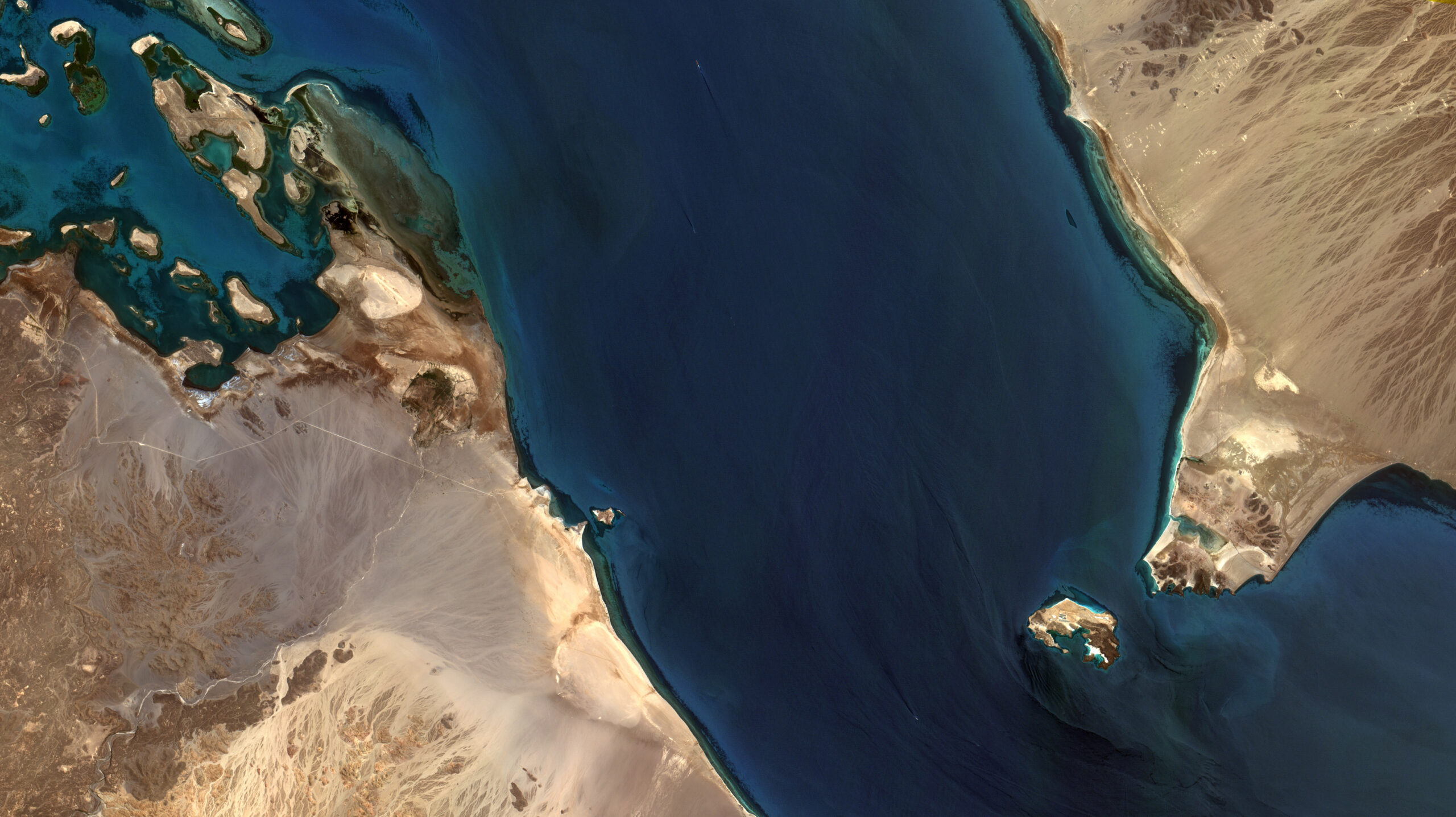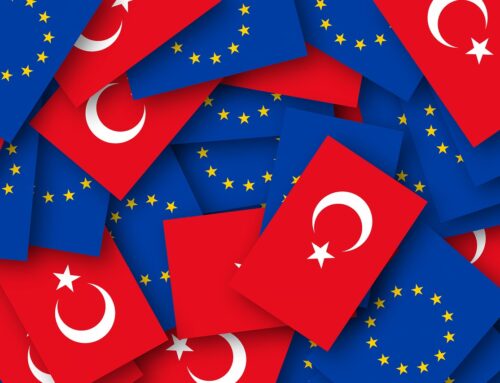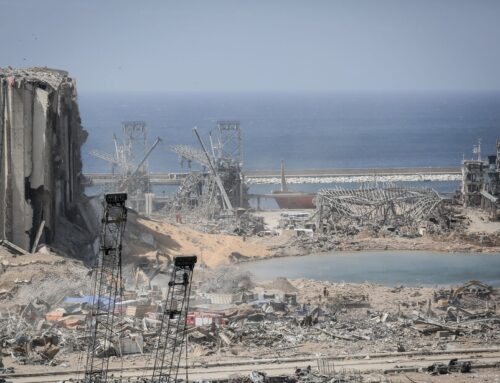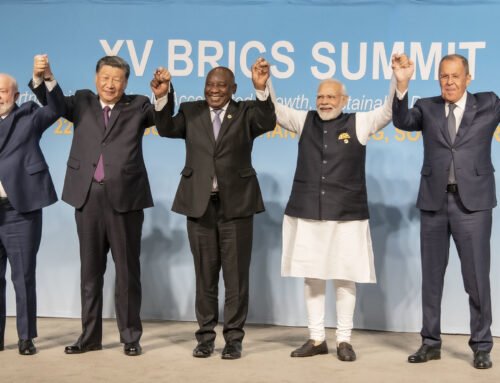Bab_al-Mandab_Strait
Autor foto: Domena publiczna

Situation on the Red Sea and threats to navigation through Bab al-Mandab Strait
January 30, 2024
Author: Witold Repetowicz




Bab_al-Mandab_Strait
Autor foto: Domena publiczna
Situation on the Red Sea and threats to navigation through Bab al-Mandab Strait
Author: Witold Repetowicz
Published: January 30, 2024
Pulaski Policy Papers nr 3, 30th January 2024
The outbreak of the war in Gaza caused the activation of Iranian proxies or the so-called “Axis of Resistance” around the region with the aim of targeting not only Israel but also the USA and all countries perceived as supporting Israel. This is particularly visible in the case of Yemen Houthis. While their attacks on Israel with long-range cruise and ballistic missiles and drones did relatively little harm, the same cannot be said about Houthi’s attacks launched on ships passing Bab al-Mandab and taking the Red Sea route. Houthis extensive interpretation of “being supportive to Israel” made most of the vessels taking that route their target. It is particularly the case of European and American ships, while those connected to countries friendly to Iran, especially China and Russia, are not so much endangered.
This situation led to severe disruption of delivery chains, increased shipping insurance costs, and the necessity to take a longer route by circumnavigating Africa. It lengthens the journey by one to two weeks, making costs skyrocket. In answer to these attacks, the USA and the UK, with the assistance of some other countries, started Operation Prosperity Guardian. Despite several US precise air strikes on Houthi’s missile storages, they didn’t stop the attacks. Notably, almost all Arab countries, especially Saudi Arabia and the United Arab Emirates, refused to join this operation. Only Bahrain declared participation, but its real contribution is symbolic. Moreover, the EU decided to launch its own naval operation. The Red Sea and Bab al-Mandab transit routes are among the most important in the world. About 20 % of global container traffic passes through it, responsible for 40 % of trade between Asia and Europe. It is particularly important regarding the energy sector as almost 8% of liquefied natural gas and 10% of seaborne oil passes through this route. Houthis’ attacks already caused a decrease in trade passing through the Red Sea by 40 % and an increase in shipping costs by 300%
Historical background
In media, Houthis are usually called “rebels” or “terrorists”, but such a description, aimed at deprivation of any legitimacy (to a certain degree justifiable), is of little informative value. Houthis should be considered a hybrid actor instead, escaping the sharp Weberian distinction between what is of state and what is of non-state character. The group, officially known as Ansar Allah, emerged in the 90s in opposition to the pro-Saudi policy of that time, authoritarian president Ali Abdullah Saleh and especially his permission to introduce the Wahabi radical Sunni doctrine to Yemen schools. A slight majority of the Yemeni population is Sunni (about 60 %), but Wahabism was alien to them. Shias (about 40 %) are predominantly Zaidi, which makes distinctions between them and Iranian Twelvers (Ja’fari school). However, Zaidis are mostly in northern Yemen, while Sunnis live mainly in the south. For most of the 19th and 20th centuries, both parts were separated and united only in 1990. The North quickly dominated the South, leading to a civil war, which the South lost. The North is smaller territorially but much more populous than the South, where much of the territory is desert. This is important to understand as sometimes there are suggestions that Houthis control only a small part of the country. In fact, at least 60% of the Yemeni population, predominantly Zaidis, are under their control. They also control most of Yemeni dilapidated infrastructure.
Saleh was also nominally Zaidi, but his policy was not sectarian-oriented. Meanwhile, already after the Iranian revolution of 1979, the idea of Shia “Islamic republicanism” gained support in Yemen. But Houthis transformed from a political group into an insurgent only in 2004 when Saleh decided to crash it and its founder, Hussein al-Houthi, was killed. It was also then when they adopted the slogan “God is the greatest, death to America, death to Israel, a curse upon the Jews, victory to Islam”. Till 2011, they did not pose a serious threat to Saleh’s rule in Yemen. However, the events of the Arab Spring didn’t omit Yemen, and in 2012, Saleh had to resign, and Abd Rabbuh Mansur Hadi, a Sunni from the south, replaced him. At the same time, the Yemeni branch of the Muslim Brotherhood (al-Islah party), which is a Sunni organisation, dominated the politics. The chaos that emerged at that time also helped other extremist Sunni groups to occur in the south, including Al Qaeda of the Islamic Peninsula and Islamic State. These groups perceive Shias as apostates and want to exterminate them. In late 2014, Houthis exploited the chaos and took over the capital city of Sana, which is predominantly Shia. Hadi managed to escape, first to Aden, the former capital of the South, and then to Saudi Arabia, where he asked for help in quelling the Houthis rebellion. Mohammad bin Salman (now Crown Prince and then Minister of Defence of Saudi Arabia) and Mohammed bin Zayed (now emir of Abu Dhabi and UAE president) were eager to intervene. They organised a broad coalition and started Operation Decisive Storm, which was thought to be short, easy and entirely successful but turned out to be completely ineffective, despite apparent military (especially technological) superiority on the Saudi&Emirati side and continuous support from the USA (however without direct involvement). In turn, Houthis were tacitly supported by Iran, who provided them with their own cruise and ballistic missiles as well as helped them to develop production capabilities.
Yemen war caused probably the biggest humanitarian disaster in the world, with 400 thousand deaths, outbreaks of cholera, famine, etc. Houthis only strengthened their position in the North by taking over the state apparatus, including merging with the army structure. They proclaimed their own government of Yemen, not recognised by any state but Iran (since 2019). In March 2021, it also appointed an ambassador to Damascus, but he was expelled from there two years later when Syria re-joined the Arab League. Lack of recognition doesn’t change the fact that Houthis exert effective control over a big part of Yemen’s territory and a majority of the Yemeni population.
On the other hand, the internationally recognised government has even problems with continuous residing in Aden as it struggles for control against southern separatists from the Southern Transitional Council, which is supported by the United Arab Emirates. This leads to two important conclusions. First, Houthis are not just a “rebel group”, and deprivation of any legitimacy is based on the attitude to their rough conduct rather than on a reliable assessment of their organisation and capabilities.
Second, claims on lack of public support for Houthis among Yemenis are primarily based on opinions collected in the Sunni South, which do not necessarily represent the mood in the Shia North. It shouldn’t be forgotten that Saudi air raids affected the northern part of the country, and they also had a considerable impact on the difference in perceptions in the North and South.
Finally, the description of Houthis as terrorists is just a justifiable slamming them, but generally, it is irrelevant. At the end of Trump’s term as president, he designated Houthis as a terrorist group, but it was immediately changed by the new administration. The problem is that such a designation would not affect Houthi’s political position and military capabilities. Instead, it would have a substantial harmful effect on humanitarian assistance as entities providing it to the areas controlled by Houthis need to be in contact with the de facto authorities there, and this would put them under threat of US sanctions for cooperation with designated terrorists. Moreover, it would have been impossible to negotiate any ceasefire or political resolution of the war.
Limited space for a common policy
The reason that Saudi Arabia and the United Arab Emirates do not want to join any anti-Houthi operation is very clear. Houthis, from the very beginning of the war in 2015, managed to launch cross-border operations against Saudi Arabia. Eventually, the situation for the Saudis and Emirates only worsened as Houthis’ capabilities improved, and they managed to attack Saudi tankers passing Bab al-Mandab and launch missile and drone attacks against airports in Abu Dhabi and Saudi Arabia. In September 2019, they also managed to attack Saudi Aramco facilities in Abqaiq and Khurais, causing temporary disruption of oil production there and hundreds of millions of dollars in repair costs.
Emirates, already in 2019, decided to withdraw from the war against Houthis and focused on their influence in the South, which contributed to the deepening of the conflict of interest between them and the Saudis. At the same time, in the Democrats-dominated US Senate, there was a growing discontent with the conduct of the Yemeni war, especially with an increasing number of civilian casualties. After Biden became president, this led to the withdrawal of US support for Saudi Arabia in Yemen and finally led to a lasting ceasefire declared in April 2022. After China brokered the Saudi-Iran deal, there was some expectation that it would have an impact on the Yemen war, but no breakthrough happened. However, already in early 2023, Saudis started tacit negotiations with Houthis, disrupted by the outbreak of the war in Gaza. Yet it is clear that a resolution to the war could only be made with recognition of Houthis, and the only question was under which conditions it may happen. The alternative is a resumption of full-scale war.
The aim of US air strikes on Houthis is not to remove them from power but just to discourage them from launching attacks on the Red Sea and decrease their capabilities through the destruction of their military resources. So far, it appears to be completely ineffective. On the 16th of January, the European Union agreed to start a new EUNAVFOR on the Red Sea. Initially, it was proposed to extend the operation area of EUNAVFOR Somalia (Operation Atalanta launched in 2008), but it was a complete misconception. Again, calling Houthis actions on the Red Sea as “piracy” is some kind of negative narrative, but it doesn’t make it comparable to Somali pirates tactics. The capabilities of the two are completely different.
Moreover, the redeployment of forces from Aden Gulf to the Red Sea may lead to the reemergence of pirates, especially if the Somalia-Ethiopia dispute escalates. There are already some signals that pirates try to exploit the situation. As the new operation will have a defensive nature, it is doubtful if it will be able to solve the problem.
Another factor should be yet taken into account. The recent deal made by Ethiopia with Somaliland regarding the lease of 20 km of coast in exchange for recognition of Somaliland may lead to another war in the region if Ethiopia goes through with this plan. Somalia has already rejected this deal, and it can not be excluded that it will decide to reclaim control over Somaliland to block Ethiopia’s plans militarily. Somalia is too weak to do it independently, but it can count on more or less overt support from Egypt (which is in dispute with Ethiopia over the GERD dam project) as well as Turkey and Qatar (which have maritime interests in Mogadishu). Also, the USA and EU deplored Ethiopia’s move as contravening international law. On the other hand, Ethiopia and Somaliland may receive support (in various forms, not necessarily outright) from the United Arab Emirates (who already invested in Berbera port), Russian mercenaries (as Russia is also interested in military presence on the Red Sea), China (as Ethiopia is one of the leading partners of China and its access to the Red Sea would be beneficial for China’s trade with Africa) and Iran (who recently developed its relations with Ethiopia).
Conclusions and recommendations:
- As there is little chance that the present form of Operation Prosperity Guardian and the planned EU naval operation will discourage Houthis or deprive them of capabilities to launch further attacks, a Plan B should be prepared, and it must be realised that there are only two options – either completely destruct Houthis or negotiate with them and/or with Iran.
- As air raids, especially limited in scope and intensity, can not lead to the removal of Houthis from power, it must be clear that to achieve this goal, it is necessary to restart full-scale war in Yemen and convince Saudis to lead such an operation. It is clear that Saudis will be ready to do that only if they are assured that the West, including the EU and USA, will turn a blind eye to civilian casualties and offer much bigger assistance than in the 2015-2020 period. This would be a hazardous strategy as, in effect, NATO may become drawn into this conflict, including the necessity to deploy ground forces. This would be a distraction from the war in Ukraine, and Russia will be the primary beneficiary of such developments. Therefore, it is doubtful if such a solution is desirable.
- Engaging in negotiations with Houthis is also risky as it will give them legitimacy. But it should be considered as some form of recognition may lead to more responsible behaviour on their side. Worth noting is that the Taliban is not taking adventurous jihadi actions after regaining power in Afghanistan. Moreover, Syria, as a state-natured member of the Iranian Axis of Resistance, does not play as active a role in the present attacks against Israel and the USA as non-state members do because it has much more to lose. However, such a scenario will expose Joe Biden to harsh criticism from Donald Trump and Republicans, who will accuse him of surrendering to Iran and try to exploit this in his election campaign against him (which would probably be quite successful).
- Designating Houthis as terrorists will not lead to any solution unless it is part of the plan to remove them from power militarily. Otherwise, it will only deepen the humanitarian catastrophe and make it impossible to conclude the Yemen war.
- Reactivating the deal on the Iranian nuclear program (JCPOA) could become a carrot for Iran to reassess its regional policy and exert pressure on Houthis to stop its attacks on the Red Sea. However, such a development is almost impossible due to the US presidential campaign and little signs of flexibility on the Iranian side. War in Gaza is, of course, an additional factor that makes this scenario improbable.
- The only durable solution for stability in the region is a political resolution to both Palestinian and Yemeni conflicts. EU should adopt a common and consistent position regarding the war in Israel and exert pressure on Israel to agree on a durable ceasefire and implementation of a two-state solution in exchange for the normalisation of ties with the majority of countries in the region and elimination of terrorist organisations. Only such a solution can deprive Iran, or other entities, of instruments of waging a proxy war against Israel and lead to the isolation of Iran if it does not accept a new reality. At the same time, Houthis should be offered negotiations on the resolution of the Yemen war, and it should be clear that their recognition will depend on the termination of their attacks on the Red Sea.
- EU should also exert pressure on Ethiopia to withdraw from its deal with Somaliland and simultaneously help negotiate a trilateral agreement between Ethiopia, Somalia and Somaliland on Ethiopia’s access to the Red Sea.
- Poland should support common EU actions leading to peaceful solutions to Palestine and Yemeni conflicts and avoid being perceived as taking any sides in them.
Autor: Dr Witold Repetowicz, Research Fellow, Casimir Pulaski Foundation





